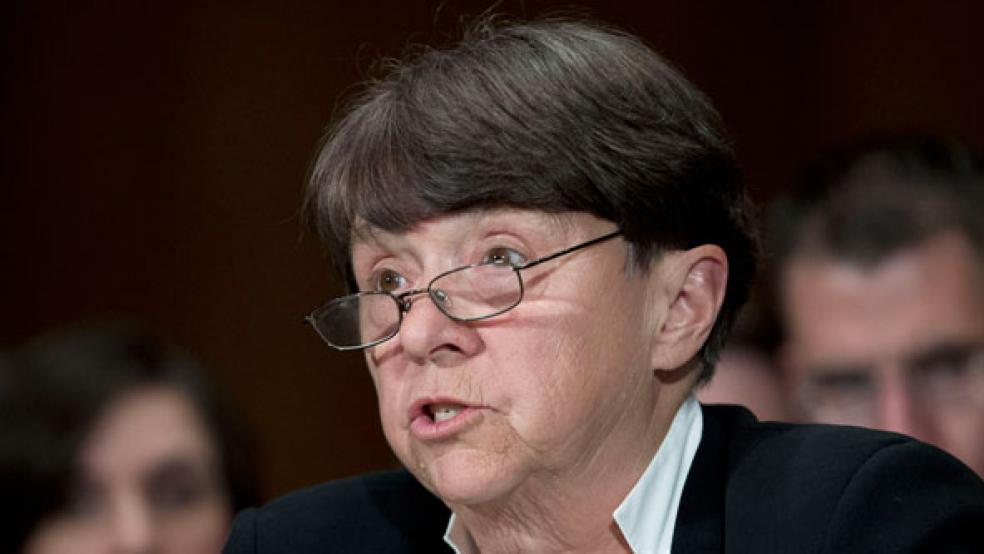The head of the agency charged with regulating Wall Street and protecting investors blasted Congress on Friday for a funding shortfall that, she said, leaves major holes in enforcement.
In a speech at an agency conference, Securities and Exchange Commission Chairman Mary Jo White said that at a time when new laws and regulations have increased her agency’s responsibilities, “our funding falls significantly short of the level we need to fulfill our mission to investors, companies, and the markets.”
Related: “Young Money” – How Wall Street Turns Its Pups Into Wolves
“As Chair, I owe a duty to Congress, the staff, and to the American people to use the funds we are appropriated prudently and effectively. But it also is incumbent upon me to raise my voice when the SEC is not being provided with sufficient resources.”
White said that the SEC’s 4,200 employees are “not nearly enough to stretch across a landscape that requires us to regulate more than 25,000 market participants, including broker-dealers, investment advisers, mutual funds and exchange-traded funds, municipal advisors, clearing agents, transfer agents, and 18 exchanges.”
The agency’s total budget authority in 2013 was $1.33 billion in 2013, down from $1.35 billion the previous year, and in less than a year on the job, White has already found herself frequently in the position of asking Congress to let the agency spend more money. In Congressional testimony earlier this year, she proposed a 26 percent increase in the SEC’s budget to $1.67 billion.
The SEC’s funding is considered “budget neutral” in terms of its impact on federal spending, because the amount of money Congress appropriates for the agency is offset by fees collected from the financial industry. However, Congress has been reluctant to increase the agency’s funding, even as new laws, including the Dodd-Frank Act, have loaded it down with new responsibilities.
In January, for example, the spending bill that passed Congress slashed funding to improve IT infrastructure at the agency by $50 million, a 50 percent reduction.
“If Congress provides us with increased funding, it will not increase the budget deficit or take resources from other programs or agencies, but it would go directly to protecting investors and strengthening our markets. Given the critical role we play for investors and our expanded responsibilities, obtaining adequate funding for the SEC is and must be a top priority.”
It could be argued that the SEC is not just budget neutral, but budget positive. In 2013, the agency took in well over twice its annual budget in fines and other penalties from enforcement actions against market participants.
Top Reads from The Fiscal Times





